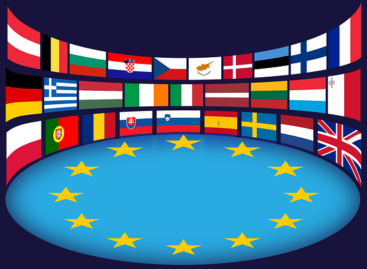The upper limit values for ochratoxin A in these foods have been changed
Commission Regulation (EU) 2022/1370 on the amendment of Regulation (EC) 1881/2006 with regard to the upper limit values of ochratoxin A in certain foods has been published.

Finally, the permissible level of ochratoxin A in herbal teas, which poses a health risk, has also been regulated (Photo: Pixabay)
Commission Regulation (EC) No. 1881/2006 defines the upper limit values for certain pollutants in food, including ochratoxin A.
What is why the change was necessary
In 2020, the European Food Safety Authority (hereinafter: the Authority) adopted an updated scientific opinion on ochratoxin A in food. The Authority considered that it is inappropriate to establish a health-based guideline value for ochratoxin A, and that the permissible weekly intake of 120 ng/kg body weight established by the Authority in 2006 is accordingly no longer valid.
There is food that has not been subject to regulation so far
Ochratoxin A has been found in foods for which maximum levels have not yet been established and which contribute to human exposure to ochratoxin A, therefore it is appropriate to establish maximum levels for the following foods as well:
- for dried fruits other than dried grapes,
- for some licorice preparations,
- for dried herbs,
- for certain components of herbal decoctions,
- for certain oilseeds,
- for pistachios
- for cocoa powder,
- for non-alcoholic malt beverages,
It is mandatory to reduce the amount of the compound in these products
Taking into account the available occurrence data, the maximum limit for ochratoxin A should be reduced for the following foods:
- for pastries,
- for dried grapes,
- for roasted coffee,
- soluble in coffee.
In addition, the existing provisions on ochratoxin A in certain spices have been extended to all spices.
The Annex to Regulation (EC) No. 1881/2006 is amended in accordance with the Annex to this Regulation.
The foods listed in the annex, which were legally placed on the market before January 1, 2023, may remain on the market until their quality preservation or consumption period.
The decree enters into force on the twentieth day following its publication in the Official Journal of the European Union (August 5, 2022).
NAK
Related news
Thousands of farmers protest in Brussels against EU-Mercosur agreement
🎧 Hallgasd a cikket: Lejátszás Szünet Folytatás Leállítás Nyelv: Auto…
Read more >The European Commission presented an online consumer protection strategy
🎧 Hallgasd a cikket: Lejátszás Szünet Folytatás Leállítás Nyelv: Auto…
Read more >








